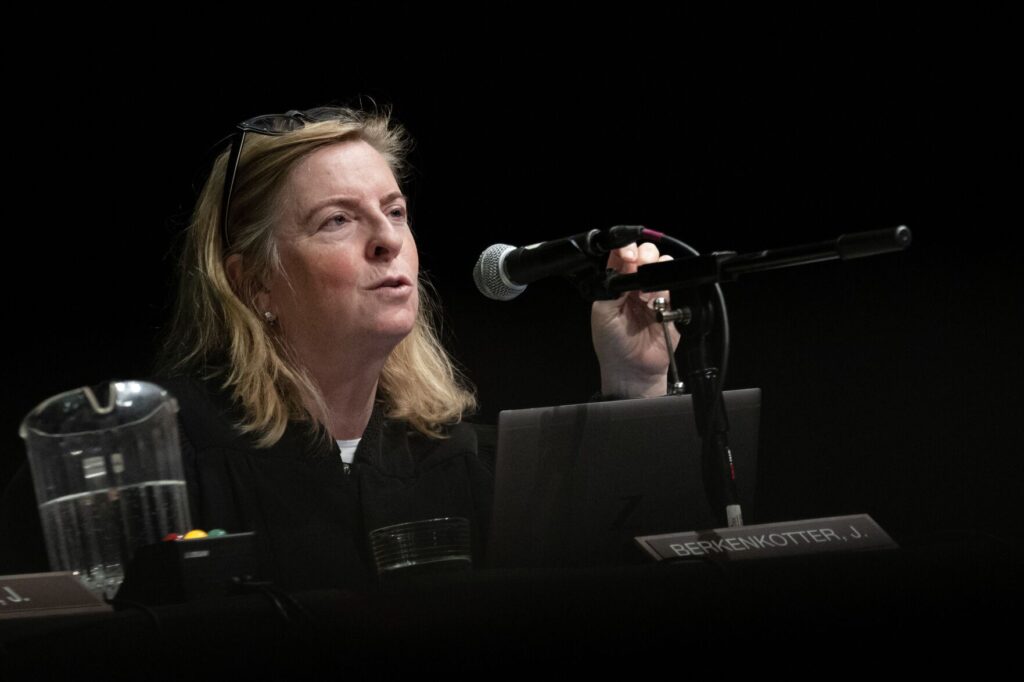Federal judge advances defamation lawsuit from woman called ‘prostitute’ at party

A federal judge on Wednesday declined to dismiss a defamation lawsuit stemming from a 2024 party at which the defendant allegedly called the plaintiff a “prostitute.”
Tiffany Mai alleged that during a July 2024 dance at a luxury dude ranch in Granby, attendee Laura Elsaden approached other guests and “began making defamatory, slanderous, and false statements about Ms. Mai including that Ms. Mai was a prostitute.”
Earlier this year, U.S. District Court Judge Charlotte N. Sweeney granted Elsaden’s motion to dismiss the case after reasoning that Mai held herself out as someone who has “assumed a role” of prominence. Consequently, she qualified as a public figure and needed to allege that Elsaden spoke with “actual malice.” Because Mai had not, Sweeney dismissed the complaint.
Mai then amended her allegations to clarify she is not a public figure. She wrote that she has never sought media attention, is “not famous” and has not engaged in “public persona-building efforts.”
During a hearing in Sweeney’s courtroom, Sweeney agreed Mai’s revised allegations stated a plausible defamation claim that did not require her to prove actual malice on Elsaden’s part. Sweeney noted Mai’s initial allegations painted her as a successful investor and philanthropist, and sought $50 million in damages.
“I think part of the problem in the original complaint was the plaintiff was ensuring that she was setting up, one, her background and reputation, and two, a claim for a larger amount of damages,” said Sweeney, “and perhaps overestimated her prominence in the business and social circles in which she operates.”
Sweeney cautioned that the discovery of evidence could ultimately reveal Mai’s status is so prominent that she does qualify as a public figure after all.

Separately, Mai’s husband, businessman and 2018 Republican state treasurer nominee Brian Watson, filed a similar defamation lawsuit against Elsaden seeking $100 million. Watson alleged Elsaden called him a “criminal” who had “relations” with prostitutes at the same dance party.
Elsaden sought to dismiss Mai’s amended complaint, arguing that once again Mai needed to satisfy the higher burden of proving defamation for public figures or matters of public concern. However, Elsaden’s attorneys also accused Mai’s counsel of operating in bad faith by portraying a completely different version of Mai than her initial complaint described.
For example, Mai originally alleged she was an “award-winning businesswoman and philanthropist” with “considerable success” and “prominence in business and social circles.” As amended, Mai “lives predominantly a quiet, private, life focused on her children” with “no societal influence.”
“You cannot look at these two complaints and say this is the same person being described,” attorney T. Markus Funk told Sweeney.
Tracy L. Ashmore, representing Mai, countered that the revised allegations amounted to “more context” in response to Sweeney’s first order finding Mai a public figure.
“You can win an award at your job and care about humanity and also be a very private person,” she said.
Sweeney defended her initial finding that Mai was a public figure by pointing out Mai’s first complaint specifically referenced the actual malice standard applicable to public figures.
“Rest assured there were valid reasons why the court jumped on the public figure analysis, because it was set up that way,” she said.
Sweeney otherwise agreed with Ashmore that the amended complaint did establish Mai was not a public figure, and she did not find the clarifications to amount to bad faith. At the same time, she cautioned that she was “a little concerned” about some of the abrupt shifts in Mai’s characterization as a fundamentally private person.
“I’m not so sure that will prove to be true. And it’s bordering on contradictory to what was in the original complaint,” Sweeney said.
She suggested the parties consider private mediation given the nature of the allegations, which also include Mai’s assertion that Elsaden’s comments knowingly implicated racist stereotypes about Asian women.
“We’re open, obviously, because of just the cost involved and the emotional toll when you’re accused of making apparently now racist false statements, if you’re a person who’s never been accused of anything like that. This is very draining,” said Funk. “Yes, we’re interested in resolving the matter.”
Ashmore agreed that settlement discussions would continue.
The case is Mai v. Elsaden.













